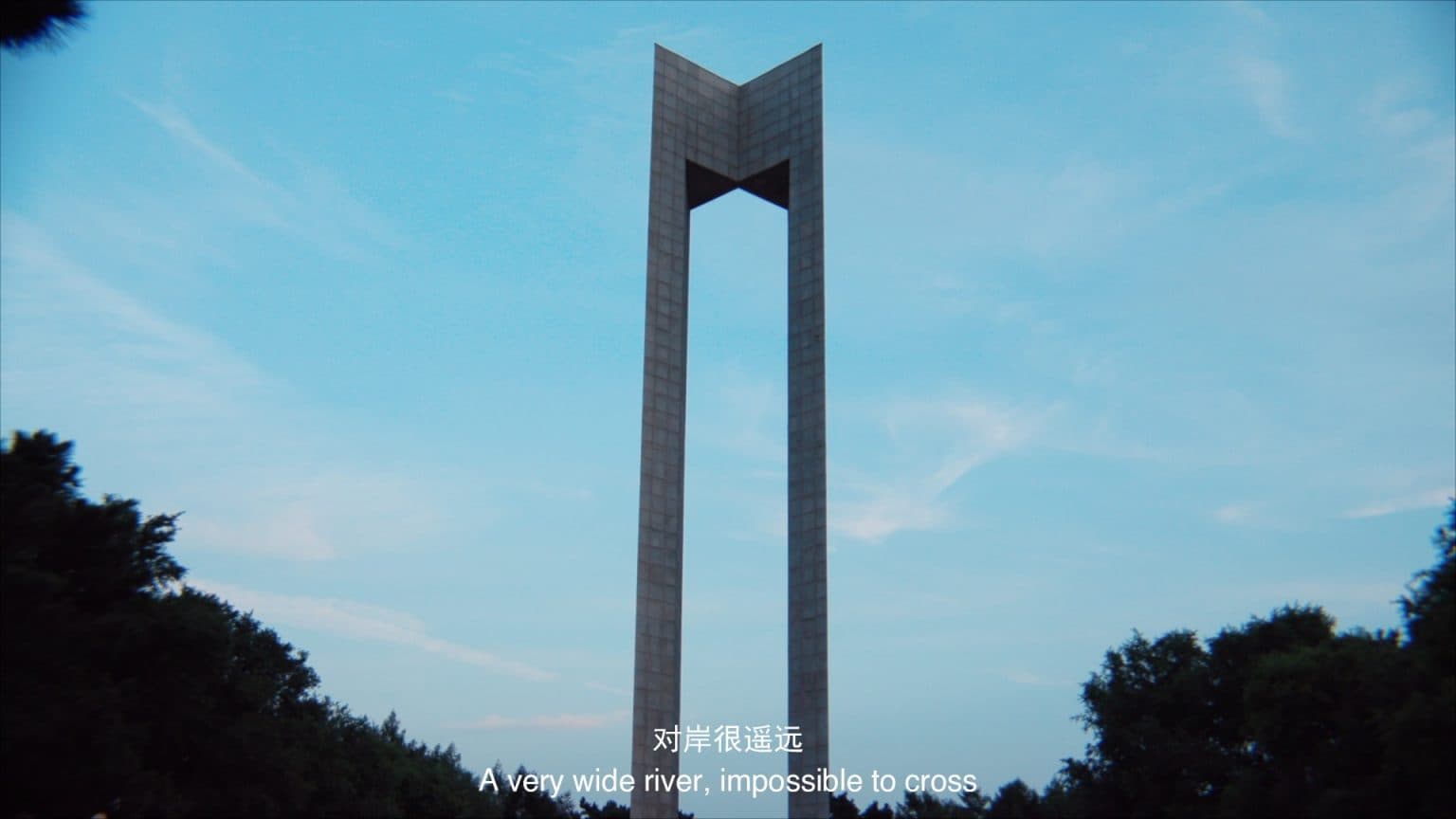South Lake Park to Hongqi Street從南湖公園到紅旗街
From South Lake Park to Hongqi Street is a dual-channel essay film based on the inquiry “What is Manchukuo Film Association”, which threads together the spaces, characters and stories related to the Manchukuo Film Association, connected by the artist’s voiceover narration. These stories comprise of a myriad of protagonists, including the Manchukuo actress-singer Li Xianglan (Yoshiko Yamaguchi), personnel working in the Manchukuo film association and Changchun Film Group Corporation, scholars of Sino-Japanese films etc. Through these narratives, the artist attempts to insert answers into the blanks that History indifferently or haphazardly left out. The corresponding places are washed out, forlorn and almost mundane, littered with bequeathed ideologies, unremembered names, discarded memories, inadvertently laid tombstones and monuments, and ruinous architecture. In the playback of her own footages, the artist tries to sort out the people, objects, time and space that she has encountered in the filming of the project, grasping for answers from the details that may have been undetected during the recording.
《從南湖公園到紅旗街》是一個以「什麼是株式會社滿州映畫協會?」為脈絡的雙屏作品,由藝術家的旁白串連與滿映有關的空間、人物和故事。這些人物包括滿映女星李香蘭、曾於滿映和長影工作的人員、研究中日電影的學者等等。通過這些敍事,藝術家誉試介人被歷史輕描淡寫的、需要填補的空白:它們發生於已經退色而且變得平凡的地方,充斥著被遺贈的意識形態、無人惦記的名字、被唾棄的回億、不經意立下的墓碑和石碑、和已經廢棄的建築。藝術家在回放自己的影像當中,通過觀看、並置自己在「滿映項目」中接觸到的各個時空的人、物、場景,從那些在拍攝記錄現場也許都没有注意到的細節中,試圖梳理出自己的答案。
about the artist /
Hao Jingban (b. 1985, Shanxi Province, China) works with film and video to investigate the historical distance between the present viewer and a certain era in the past. In her research-based practice, the artist conducts historical investigation, archival research, field study, personal interviews, and live performances. From the ballroom dancing in Beijing before and after the Cultural Revolution, to the films of North-eastern China from the 1930s, the artist weaves together complex historical narratives, social movements and cultural commentary against the ambivalence and silence of the bygone era.
Hao’s solo exhibitions include “Hao Jingban: Opus One” (Matadero Madrid, Madrid, Spain, 2020); “Silent Speech” (OCAT Xi’an, Xi’an, China, 2019); “New Directions: Hao Jingban” (Ullens Center for Contemporary Art, Beijing, China, 2016); and “Over-Romanticism” (Taikang Space, Beijing, China, 2016). Her works have been exhibited in institutions and biennales, including Rockbund Art Museum (Shanghai, 2019); Guangdong Times Museum (Guangzhou, 2018 & 2019); Centre Pompidou (Paris, 2017 & 2019); Museum of Fine Arts (Boston, 2018); “FRONT International: Cleveland Triennial for Contemporary Art” (Cleveland, 2018); 11th Shanghai Biennale (Shanghai, 2016); Kuandu Museum of Fine Art (Taipei, 2016); Museum of Contemporary Art (Hiroshima, 2016); Minsheng Art Museum (Beijing, 2015); and Jewish Museum (New York, 2014). Prizes and awards include the Huayu Youth Award Grand Jury Prize (2016), the Young Artist of the Year award at the 11th Award of Art China (2017), the International Critics’ Prize at the 63rd Internationale Kurzfilmtage Oberhausen (2017), and the Han Nefkens Foundation – ArcoMadrid Video Art Award (2019). Hao’s works are in the collection of the M+ (Hong Kong), Centre Pompidou (Paris, France) and the Power Station of Art (Shanghai, China). In 2020, the artist will be based in Berlin for the DAAD Artists-in-Berlin residency programme.
Hao currently lives and works in Beijing, China.
vmac archived / artworks from the artist
All copyright reserved by the artist. 作品版權歸藝術家所有。
For enquires, please contact [email protected]
